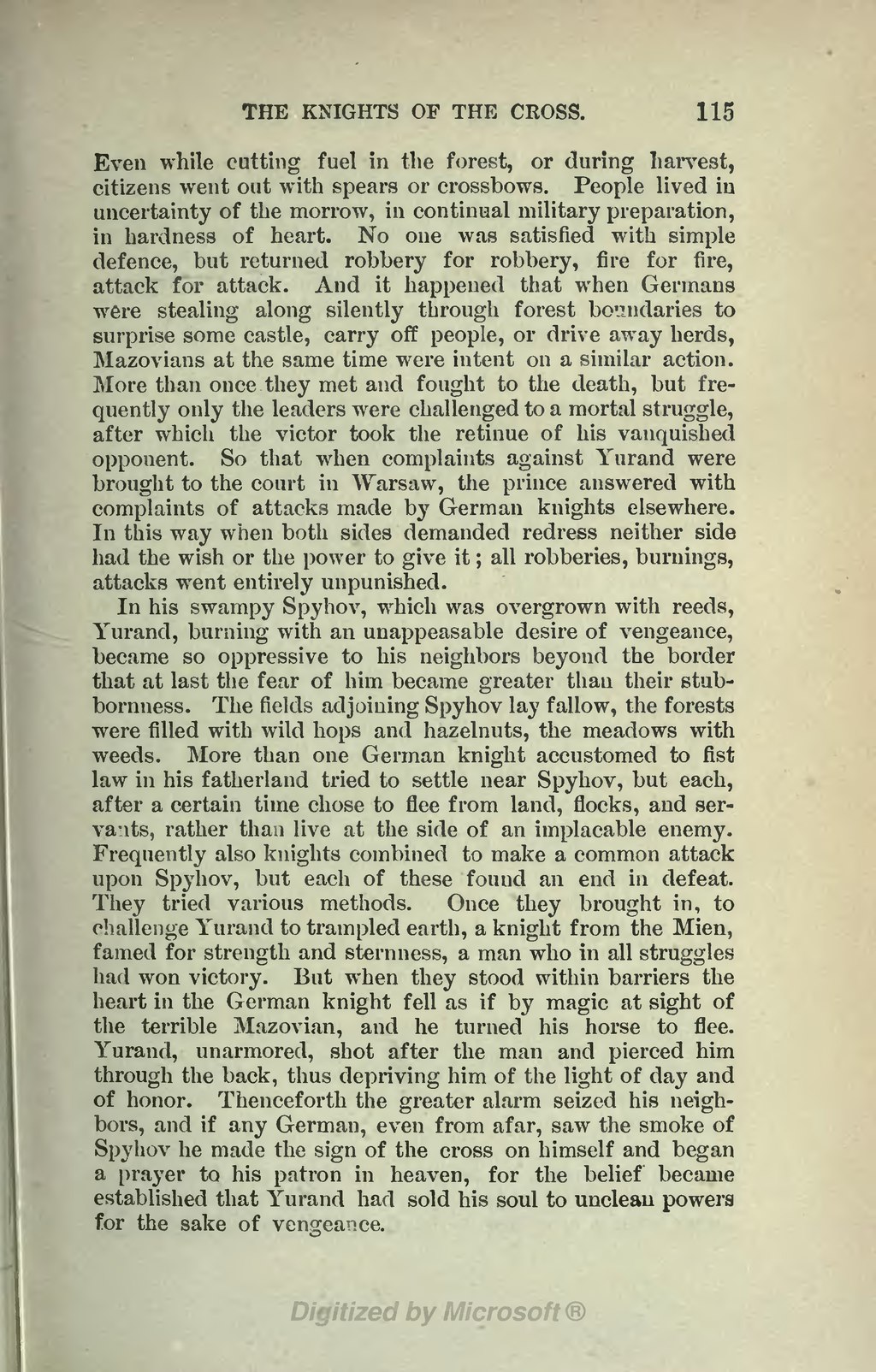Even while cutting fuel in the forest, or during harvest, citizens went out with spears or crossbows. People lived in uncertainty of the morrow, in continual military preparation, in hardness of heart. No one was satisfied with simple defence, but returned robbery for robbery, fire for fire, attack for attack. And it happened that when Germans were stealing along silently through forest boundaries to surprise some castle, carry off people, or drive away herds, Mazovians at the same time were intent on a similar action. More than once they met and fought to the death, but frequently only the leaders were challenged to a mortal struggle, after which the victor took the retinue of his vanquished opponent. So that when complaints against Yurand were brought to the court in Warsaw, the prince answered with complaints of attacks made by German knights elsewhere. In this way when both sides demanded redress neither side had the wish or the power to give it; all robberies, burnings, attacks went entirely unpunished.
In his swampy Spyhov, which was overgrown with reeds, Yurand, burning with an unappeasable desire of vengeance, became so oppressive to his neighbors beyond the border that at last the fear of him became greater than their stubbornness. The fields adjoining Spyhov lay fallow, the forests were filled with wild hops and hazelnuts, the meadows with weeds. More than one German knight accustomed to fist law in his fatherland tried to settle near Spyhov, but each, after a certain time chose to flee from land, flocks, and servants, rather than live at the side of an implacable enemy. Frequently also knights combined to make a common attack upon Spyhov, but each of these found an end in defeat. They tried various methods. Once they brought in, to challenge Yurand to trampled earth, a knight from the Mien, famed for strength and sternness, a man who in all struggles had won victory. But when they stood within barriers the heart in the German knight fell as if by magic at sight of the terrible Mazovian, and he turned his horse to flee. Yurand, unarmored, shot after the man and pierced him through the back, thus depriving him of the light of day and of honor. Thenceforth the greater alarm seized his neighbors, and if any German, even from afar, saw the smoke of Spyhov he made the sign of the cross on himself and began a prayer to his patron in heaven, for the belief became established that Yurand had sold his soul to unclean powers for the sake of vengeance.
